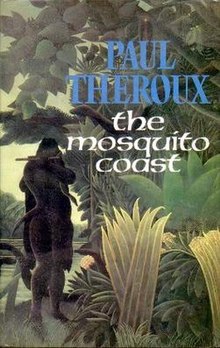
The Poisoned Chocolates Case (1929) is a detective novel by Anthony Berkeley set in 1920s London in which a group of armchair detectives, who have founded the "Crimes Circle", formulate theories on a recent murder case Scotland Yard has been unable to solve. Each of the six members, including their president, Berkeley's amateur sleuth Roger Sheringham, arrives at an altogether different solution as to the motive and the identity of the perpetrator, and also applies different methods of detection. Completely devoid of brutality but containing a lot of subtle, tongue-in-cheek humour instead, The Poisoned Chocolates Case is one of the classic whodunnits of the Golden Age of Detective Fiction. As at least six plausible explanations of what really happened are put forward one after the other, the reader—just like the members of the Crimes Circle themselves—is kept guessing right up to the final pages of the book.

The Red House Mystery is a whodunnit by A. A. Milne, published in 1922. It was Milne's only mystery novel.

The Mosquito Coast is a 1986 American drama film directed by Peter Weir and starring Harrison Ford, Helen Mirren, Andre Gregory, and River Phoenix. It is based on the 1981 novel by Paul Theroux. The film tells the story of a family that leaves the United States and tries to find a happier and simpler life in the jungles of Central America. However, their jungle paradise quickly turns into a dystopia as their stubborn father's behavior becomes increasingly erratic and aggressive. It was shot in the cities of Cartersville and Rome in Georgia, in addition to Baltimore, Maryland and Belize.
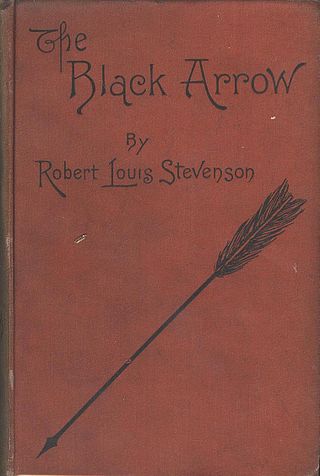
The Black Arrow: A Tale of the Two Roses is an 1888 children's novel by Robert Louis Stevenson. It is both a historical adventure novel and a romance novel. It first appeared as a serial in 1883 with the subtitle "A Tale of Tunstall Forest" beginning in Young Folks; A Boys' and Girls' Paper of Instructive and Entertaining Literature, vol. XXII, no. 656 and ending in vol. XXIII, no. 672 —Stevenson had finished writing it by the end of summer. It was printed under the pseudonym Captain George North. He alludes to the time gap between the serialisation and the publication as one volume in 1888 in his preface "Critic [parodying Dickens's 'Cricket'] on the Hearth": "The tale was written years ago for a particular audience..." The Paston Letters were Stevenson's main literary source for The Black Arrow. The Black Arrow consists of 79,926 words.

Tin Woodman is a science fiction novel written by Dennis Russell Bailey and David Bischoff. It was first published in 1979. The story, about a psychic who makes contact with a sentient spacecraft, was adapted into an episode of Star Trek: The Next Generation.

Firewing is a children's book written by the Canadian author, Kenneth Oppel. It is the third book in the series which also consists of: Silverwing, Sunwing and the prequel, Darkwing.

The Aquitaine Progression is a novel by Robert Ludlum originally published in 1984.

Darkwing is a 2007 young adult fantasy novel by Canadian author Kenneth Oppel. It is the prequel and fourth book of the Silverwing series, and takes place 65 million years before the events of the first book. It describes the origins of the war between the birds and the beasts.

The October Horse is the sixth novel in Colleen McCullough's Masters of Rome series. It was first published in November 2002 by Century in UK and Simon & Schuster in USA.
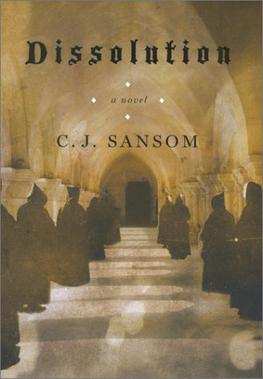
Dissolution (2003) is a historical mystery novel by British author C. J. Sansom. It is Sansom's first published novel, and the first in the Matthew Shardlake Series. It was dramatised by BBC Radio 4 in 2012.
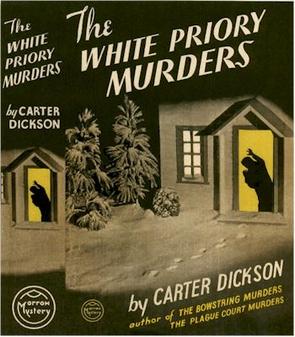
The White Priory Murders is a mystery novel by the American writer John Dickson Carr (1906–1977), who published it under the name of Carter Dickson. It is a locked room mystery and features his series detective, Sir Henry Merrivale, assisted by Scotland Yard Inspector Humphrey Masters.
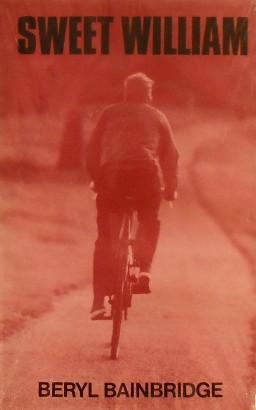
Sweet William is a 1975 novel written by Beryl Bainbridge, it was made into a 1980 film of the same name for which Bainbridge wrote the screenplay.
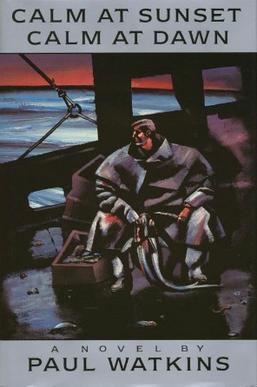
Calm at Sunset, Calm at Dawn is the second novel by American author Paul Watkins. It was published in 1989 by Houghton Mifflin and shared the Encore Award the following year.
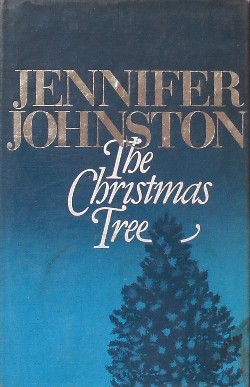
The Christmas Tree is Irish author Jennifer Johnston's sixth novel, first published in 1981 by Hamish Hamilton. It has been suggested by The Irish Times as being her finest work, and was chosen by the Irish Independent to be published as one of the books its "Irish Women Writers" collection. It is one of U.S. writer Lionel Shriver's favourite books and was adapted for television in 1986.

Set in 1970s London, Legacy is a spy novel by English author Alan Judd. Published in 2001 it continues the story of Charles Thoroughgood, first introduced in his debut novel, A Breed of Heroes, published 20 years earlier. British historian Peter Hennessy described it as 'one of the best spy novels ever'.
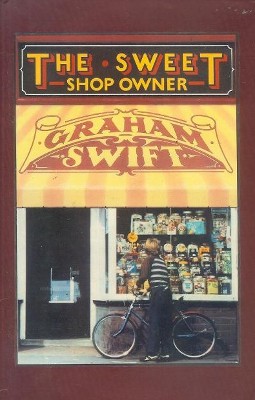
The Sweet-Shop Owner is the debut novel of English author Graham Swift. It was published in 1980 to largely favourable reviews.

Star Gate is a science fantasy novel by American writer Andre Norton, published by Harcourt, Brace & Company in 1958. The story is science fiction with a blend of sword and sorcery, mingling technologically advanced humans from Earth with the human natives of the far-off world of Gorth and a native culture that has achieved the development level of medieval Europe.

Territorial Rights is a novel by the Scottish author Muriel Spark published in 1979.
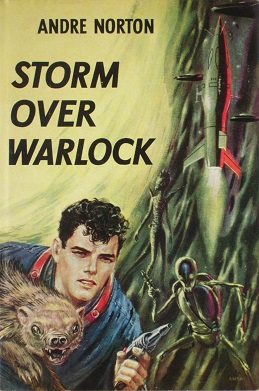
Storm Over Warlock is a science fiction novel written by Andre Norton and published in 1960 by the World Publishing Company. The story combines science fiction with fantasy, technology with witchcraft, in a way typical of Norton's works. The sequels are Ordeal in Otherwhere and Forerunner Foray.

The Mosquito Coast is an American drama television series developed by Neil Cross and Tom Bissell based on the novel of the same name by Paul Theroux published in 1981. Premiering in 2021, it also used the novel's 1986 film adaptation as a source. The series stars Justin Theroux, nephew of Paul, and Melissa George in lead roles, with Logan Polish and Gabriel Bateman rounding out the main cast. Justin Theroux also serves as executive producer of the series, along with Rupert Wyatt who directed the first two episodes.
